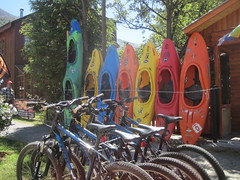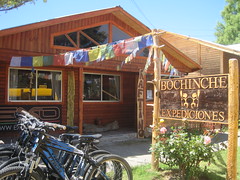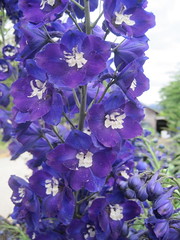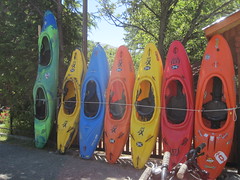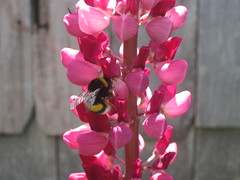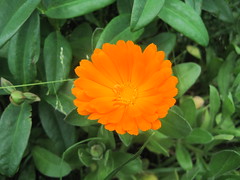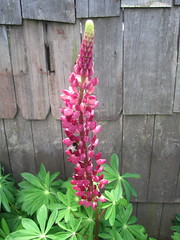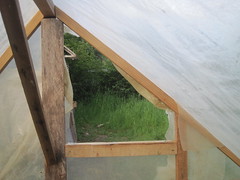Well I left Chilean Patagonia a little over two weeks ago, and it’s incredible how far away it feels already. (And not just spatially far away, although yes it is quite far at almost 6,000 miles.) Being back in the Boston area where everything feels so familiar, it would be easy to forget how familiar Patagonia was as well. Living in Futaleufú for almost a whole year, it became my reality, even more real to me than home at the time. It’s nice to have this blog, friends to talk to, and thousands of pictures to help bring myself back into that reality from time to time.
I’d like to reflect a last few things that have to do with “language, environment and interculturalism” (relevant based on this blog’s description) as 2014 comes to a close.
Spanish of Chilean Patagonia. My first several months in Futaleufú I had the most difficulty in understanding Chilean Spanish. My Spanish was learned in the classroom and in Spain, so I needed to learn an entirely new Spanish upon arriving in Chile. Sitting around the lunch table, for instance, where I often ate with around 7 other people on a daily basis, trying to following the conversation could be awfully disheartening. It’s a general truth that it is harder to understand what is being said between other native speakers, than when someone is speaking directly to you and there is opportunity to check for understanding. As the year went by, I’ve slowly understood more and more.
There are many chilenismos or Chilean and Patagonia slang words that play a big part in the language of Chilean Patagonia. “Che,” “po,” “cachar,” the verb ending “-ai” that commonly replaces “-as” in the tú form, to name a few. (Not to mention a number of expletives that are very common in casual speech.) These took a while to get used to. But it’s not just the isolated ‘chileanisms’ that made it difficult to understand the new language but rather it was everything at once: the rhythm people use when talking, how people pronounce each word or tend to phrase things, their accents, the extreme regional differences in vocabulary, as well as yes, the idioms and slang.
Since the beginning of the year I have greatly increased my ability to understand Chilean Spanish and to speak it more accurately. However, I could only come so far in one year. At this point I still can only understand perhaps 50% of conversations going on between other people in the same room, but it easier to tune out and in and quickly ask for clarification on important topics. In recent weeks, I heard my own voice recorded and reacted with surprise. Living and speaking with locals for so long, I somehow expected my voice to sound more like their voices, but I still sounded awfully foreign. Oh well, I seem to be the only one bothered by it, so I won’t let it bother me! I am really proud of the extent to which I’ve been able to dominate the language.
Argentinians and also people from Chilean Patagonia use the word “che” quite freely. Deriving its meaning from the Mapuche word for “person” it is used sort of like “dude” or “man” in English. The word is pervasive – I remember the following anecdote from my kindergarten class: I helped one child ask another to lend him a pencil or eraser and then coached him to say thank you. “Graciasch” he said, seeming to combine “thanks” and “che” into one abbreviated word. It was adorable coming from a 5-year-old.

In the restaurant on the corner, I found a copy of Trivial Pursuit (in Spanish), an iconic family game of my childhood.
Culture shock? I can’t say I experienced any acute moments of culture shock. But I can now more fully appreciate the difficulty of relocating one’s whole life to a new place. If I had a shock in Chile, it was a combination ‘culture, language and career’ shock. Moving to a new place can be stressful. Moving to a new place where they speak a new language and where you’ll be doing a new type of work is very difficult. It turned out that Chilean Spanish took some getting used to, and it took me quite a while to get used to the culture of the school and to get good at my teaching responsibilities. I can say that in the end I worked through the various “shocks” and am happy with what I’ve learned accomplished this year. And now that I’ve gotten over the hardest cultural differences, it will be much easier the next time I find myself in Chilean Patagonia!
I also want to say, even if it sounds a bit cliché, it’s hard to really understand it or believe until you get to a new place, but people really are very similar wherever you go. It’s the little (or sometimes not-so-little) cultural differences that can cause discomfort or misunderstanding, but beyond the little things you usually recognize the similarities in human nature are exponentially bigger than the differences in the end.
Water. After the people, I think the number one thing I will miss about my home this year will be the water. The rivers, lakes and waterfalls are really incredible. Their color and their purity astound me. I could stare at them endlessly. And on a warmish day I’ll often jump in for a swim even when the temperatures are a bit icy. The water is also delicious in Patagonia, from the tap or straight from a river or waterfall. These rivers are not the Mapocho River in Santiago… but they are in danger. Controversial mining and dam projects are constantly on the horizon.

Going down the El Azul River in riverbug with Bochinche Expeditions.
Beyond admiring the water, drinking it and swimming in it, I have been lucky enough to go in both the El Azul River and the Espolón River in riverbug. A riverbug is something like a small personal raft that you can ride down the river, controlling yourself with flippers and webbed gloves. It was incredibly fun. Futaleufú has a huge tourism economy with thousands of Chileans and international tourists coming each summer for kayaking, rafting, riverbugs, fly-fishing, hiking and fresh air. It’s the only city in all of Chile that has riverbugs.
* * *
Well, I’ve got to end by thanking the family, friends and coworkers who’ve helped me be able to get to Chile this year, and to make it through to the end. It was a really incredible experience, one that I almost almost decided to extend to a second year. I can’t say that I made a right or wrong decision by deciding to move back up to the Boston area this year, but either way I think it is going to be a good year. I will continue to pursue my career in English Language Teaching. And I hope to make it back to Patagonia soon!








